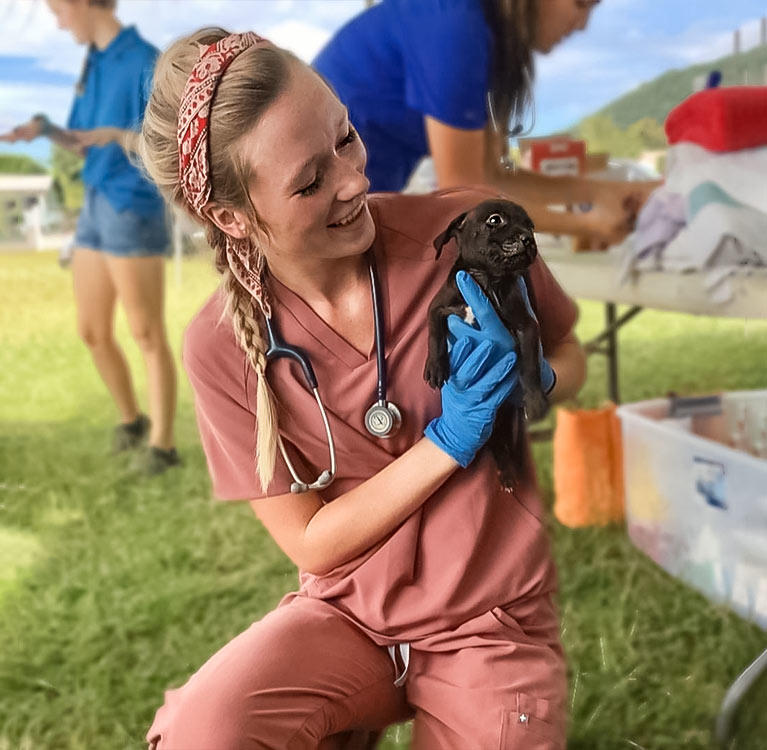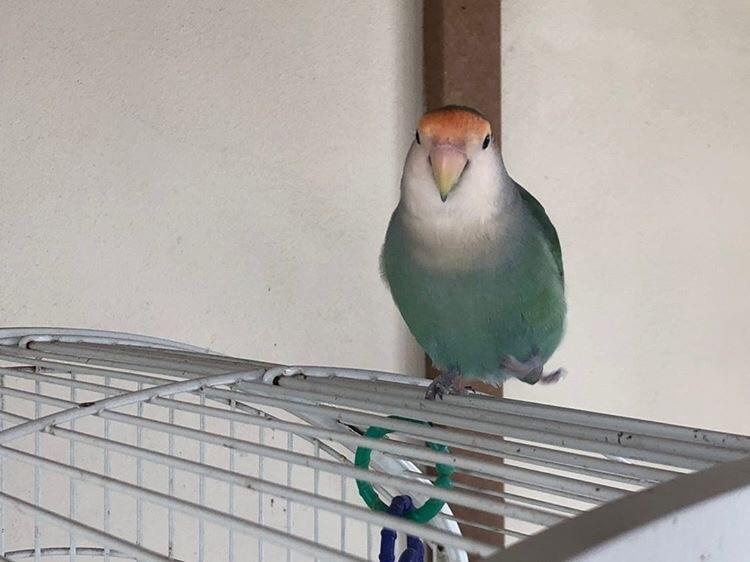What Is Veterinary Sports Medicine?
Sporting animals—like human athletes—need special medical care, as do performance and working animals or any animal that needs physical rehabilitation. For these animals, there are specialists in veterinary sports medicine, a field that includes orthopedics and veterinary rehabilitation. Sports medicine veterinarians take care of athletic and show animals, but also any animal recovering from surgery or suffering from a debilitating impairment.
Students interested in becoming a specialist in animal sports medicine should be aware that it can be a long but rewarding path. The path can take at least 12 years of education including undergraduate study, veterinary school, internship, and residency. It requires dedication and patience, as well as excellent grades and test scores. It also requires a desire to learn and the compassion to help animals live better and healthier lives. It is a big decision to start down the veterinary sports medicine path. If you think you want to be such a specialist, ask yourself some questions:
- Do you love animals—and science?
- Are you fascinated by animal anatomy—particularly the musculoskeletal system?
- Are you ready to provide all aspects of animal physical therapy?
- Do you want a challenging and rewarding career?
- Do you want to combine veterinary medicine with therapy and surgery?
- Are you dedicated to improving the lives of animals?
- Are you an excellent student who wants to continue learning?
If you answered “yes” to one or more of these questions, then a career as a sports medicine veterinarian may be for you.
What Do Veterinary Sports Medicine Specialists Do?
Specialists in veterinary orthopedic and sports medicine help animals move freely and without pain. They are experts in an animal’s musculoskeletal system—the bones, joints, muscles, and associated nerves—as well as in diseases, pharmacology, and tissue healing. To treat such problems as bone fractures and injuries to tendons and ligaments, sports veterinarians may use braces, carts, casts, or splints. They may use a combination of animal physical rehabilitation, therapy, physical conditioning, and may use surgery as well. Sports medicine veterinarians treat animals with such conditions or problems as:
- Amputation
- Arthritis
- Athletic injuries
- Back Pain and Spinal Cord Dysfunction
- Brain tumors
- Cancer
- Chronic pain
- Congenital defects
- Cruciate disease
- Degenerative joint disease
- Degenerative myelopathy
- Elbow and hip dysplasia
- Fibrocartilaginous embolism (FCE)
- Geriatric onset laryngeal paralysis polyneuropathy (GOLPP)
- Hospice/ palliative care
- Intervertebral disc disease
- Lameness
- Lumbosacral disease
- Obesity
- Perioperative care
- Strokes
- Tendinopathy
- Trauma
When an animal visits a sports veterinarian, the doctor communicates with the owner and studies the animal’s medical history. The doctor’s goal will be to determine the problem, make the animal more comfortable, make it stronger, and then return it to everyday activity. They try to accelerate healing by increasing stem cell population and vascular perfusion, speeding up the metabolism, and stimulating growth factor release. They will increase neuroplasticity to improve coordination, flexibility, muscle mass, neurologic function, strength, and weight bearing—and to counteract reflex inhibition of muscles. A key goal is to control an animal’s pain, allowing for a better quality of life, facilitating a return to normal function, and reducing the chance of maladaptive pain syndromes.
Animal sports medicine specialists begin by conducting full orthopedic and neurological physical exams. They pay close attention to an animal’s gait, girth, range of motion, symmetry, and how it distributes its weight. They may decide to administer tests or diagnostic imaging, and they may use such equipment, procedures, therapies, and treatments as:
- Acupuncture and Electroacupuncture
- Arthroscopy
- Balance boards
- Biopsies
- Computed tomography (CT) scans
- Electrical stimulation
- Food therapy
- Force plates
- Herbal medicine
- Hydrotherapy
- Laser therapy
- Magnetic resonance imaging (MRI)
- Manual therapy
- Massage
- Orthotics/ Prosthetics
- Preventive medicine
- Pulsed electromagnetic field therapy
- Radiographs
- Rails
- Regenerative medicine
- Shockwave therapy
- Stretching
- Theraballs
- Therapeutic exercise
- Thermotherapy
- Treadmills
- Ultrasounds
- Weave poles
- Weight management
- X-rays
Veterinarians that specialize in animal sports medicine and rehabilitation deal mainly with dogs, but they commonly see cats and horses or any other animal with an active or athletic lifestyle. They help animals recover from ailments or injuries that were once career- or life-ending.
How Do You Train for Veterinary Sports Medicine?
A veterinary sports medicine specialist must first become a Doctor of Veterinary Medicine (DVM) by graduating from a veterinary school accredited by the American Veterinary Medical Association (AVMA)—such as the Ross University School of Veterinary Medicine (Ross Vet)*. Ross Vet runs an accelerated DVM program of 3.25 years, but most veterinary schools are four years. The DVM must then complete a one-year veterinary internship or 12 months of private practice before entering an intensive three- or more year residency in Veterinary Sports Medicine and Rehabilitation. Such residencies are sometimes specialized for canine or equine practice. Qualified candidates then pass a tough multi-day examination to be certified by the American College of Veterinary Sports Medicine and Rehabilitation (ACVSMR). They may apply for membership in the American Association of Rehabilitation Veterinarians (AARV), the American Canine Sports Medicine Association (ACSMA), the American Association of Equine Practitioners (AEPP), and other professional societies.
A Career in Veterinary Sports Medicine
Veterinary sports medicine specialists often work in a specialized animal clinic or in a group practice. They usually work regular office hours, spending their days evaluating and treating patients and working with sports medicine care team members. They consult with animal owners, primary care veterinarians, and other veterinary specialists. They also dedicate time to research, studying, and teaching—some board-certified sports medicine veterinarians opt for academic positions instead of going into practice.
Demand for Veterinary Sports Medicine Specialists
Demand for all veterinary specialists is high. In 2018, the AVMA reported that there were many more jobs available—including in animal sports medicine— than there were specialists to fill them. The report also stated that animal sports medicine has a limited number of residencies—making them highly competitive. More people have been taking their animals to veterinary sports medicine specialists in recent years as people have become more aware of the specialty and the many benefits it can have.
Ross Vet provides an accelerated, broad-based curriculum that integrates unique research opportunities, classroom study, and hands-on clinical training. Take the next step on your path to becoming a sports medicine veterinarian. Apply for admission to Ross Vet.
Related resources:
*Ross University School of Veterinary Medicine confers a Doctor of Veterinary Medicine (DVM) degree, which is accredited by the American Veterinary Medical Association Council on Education (AVMA COE), 1931 N. Meacham Road, Suite 100, Schaumburg, IL 60173, Tel: 800.248.2862. For more information please visit: https://www.avma.org/education/accreditation-veterinary-colleges.
The AVMA COE uses defined standards to evaluate veterinary medical education programs, including facilities, clinical resources, curriculum, faculty, student outcomes and research programs. The standards are interpreted and applied by the AVMA COE-accredited veterinary medical education programs in relation to its mission.






